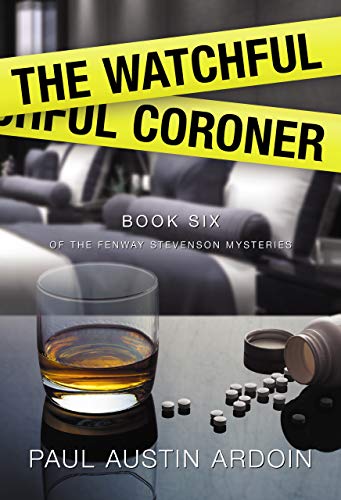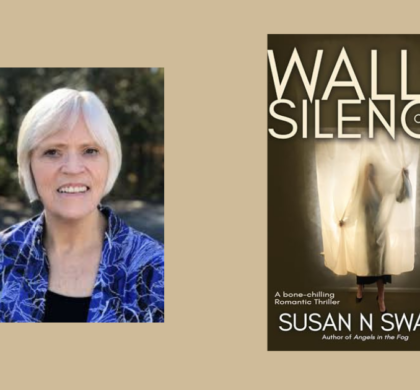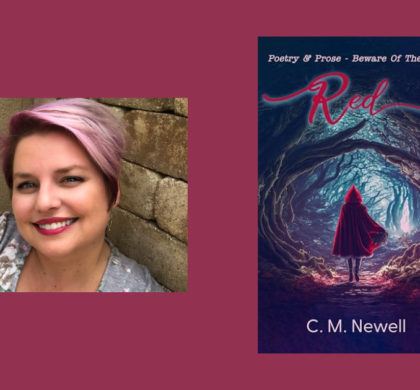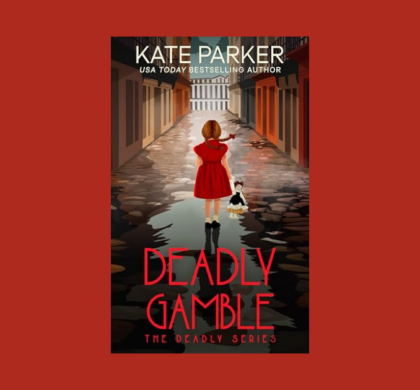Interview with Paul Austin Ardoin, Author of The Watchful Coroner
22 Sep 2020
What can you tell us about your new release, The Watchful Coroner?
While The Watchful Coroner is the sixth book in The Fenway Stevenson Mysteries, I worked hard to make sure this can be enjoyed on its own—and fortunately, my early readers have agreed. But those who have followed the series will be pleased, I hope, by the continuing story and character arcs. Many people tell me they love seeing how the interpersonal relationships have changed over the course of the series—Fenway and her stepmother in particular in this book. As with the other books in this series, the centerpiece is the “case of the week”—and while the interpersonal stories happen all around it, there’s a satisfying conclusion to the murder investigation.
What or who inspired you to become an author?
I’ve wanted to be a novelist as long as I can remember. When I was six years old, I was drawing book covers for the novels I planned on writing. When I was in elementary and high school, I wrote (or co-wrote) a couple of “complete” pieces: The Gadget Club Goes to Europe in fifth grade, about a bunch of thirteen-year-olds who were secret international spies; in high school, Mark of the Beast, a “choose-your-own-adventure” type story based on Lord of the Flies (my favorite ending was where you, as Ralph, ate the poisonous husk of a mango and died).
But I’ve always loved mysteries. I devoured Danny Dunn, Scientific Detective and Encyclopedia Brown when I was in elementary school. I read every Hercule Poirot novel I could find when I was in junior high—those were the days before e-commerce, and it was tough to find some of the lesser-known works at libraries and bookstores! But when I majored in creative writing at university, literary fiction was the only “real” writing the professors would accept. I had one creative writing professor who hated Sue Grafton, and as a result, I didn’t read A Is for Alibi for twenty years. I think that’s part of the reason I didn’t publish my first novel until I was in my 40s—the joy I felt reading mysteries no longer extended to my writing. When I finally read Grafton’s debut, I realized I needed to write mysteries, not the next Infinite Jest.
What’s on your top 5 list for the best books you’ve ever read?
One Hundred Years of Solitude by Gabriel García Marquez is jaw-droppingly good. He breaks so many rules of things you’re not supposed to do in fiction—multiple characters with the same name, most obviously—but the last forty pages wrap up the sprawling crazy mess of narrative and packages it up in a unified theme. I was stunned after reading it—I was enjoying the book in spite of its messy narrative, but the last forty pages? Sheer genius.
I really enjoy Jack Benton’s series of Slim Hardy Mysteries, and the second book, The Clockmaker’s Secret, is masterful. A deeply flawed, alcoholic detective, a twenty-year-old cold case, and a satisfyingly odd cast of characters—I couldn’t put the book down, reading it all in one sitting. I think I might have even cancelled plans to finish it. Shocking reveals and some very emotional moments.
Two of my favorite books are mysteries masquerading as literary fiction: Paul Auster’s Leviathan and Siri Hustvedt’s What I Loved. Hustvedt weaves complicated interpersonal relationships alongside the central question of the story, and it’s euphoric and heartbreaking at the same time. I’m a big fan of Auster—who’s married to Hustvedt—and his sparse metafictional style. Unfortunately, I spent too long trying to copy it in my fiction instead of finding my own voice. But the novel itself is fantastic, and had me turning pages until the end.
To end this list, I’ll pick The Silent Madonna by Michelle Damiani, another sophomore entry in a book series. Damiani’s Santa Lucia series is set in a fictional small town in the Umbrian countryside. I tell people they’re “Italian telenovelas,” but the characters are richly drawn and the plots come together at the end in a brilliant thematic union. The Silent Madonna reminds me of One Hundred Years of Solitude—not just because of the magical realism elements, but also because the town itself is a character in the book. And, of course, the ending that wraps up the many plots and character arcs.
Say you’re the host of a literary talk show. Who would be your first guest? What would you want to ask?
I’ve listened to many author interviews in the last few years, and I’m frankly amazed by the number of authors who basically say, “I have no idea what I’m doing.” As someone who’s always looking for my next book to be better than my previous book, I find that really frustrating. How can I learn from someone who doesn’t have anything to teach? That’s why I’d choose J.F. Penn—the thriller author name of Joanna Penn, who hosts The Creative Penn podcast. Her thrillers sell very well, and instead of learning about book marketing from her, I’d ask her about constructing her novels. I know she doesn’t work from an outline, but she does an amazing amount of research for her books, and I want to know how she translates what she researches into the obstacles she puts in her hero’s path.
What’s your favorite thing about writing?
I love creating the world Fenway Stevenson lives in—the town, the characters, the obstacles. I love figuring out what steps she’s going to take next, and how the killer is going to prevent her from finding the right clues and push her to the wrong ones. I find writing—as frustrating as it can be sometimes—often fun and wildly entertaining.
There’s also nothing like getting an email from an autistic sixteen-year-old girl who tells me that when she’s having a bad day, she just pretends she’s Fenway Stevenson, because she knows Fenway can get through anything and still be true to herself.
What is a typical day like for you?
My day job is in cybersecurity marketing, and because of its demands—and all the people in different time zones—I don’t really have a typical day. Sometimes I can get an hour of writing done before work, and often I’ll be writing late into the evening. I listen to a podcast called The Bestseller Experiment, and they have a challenge where you write 200 words a day. That’s not a lot—15 or 20 minutes, tops—but it’s really helped me write almost every day, and quite often if I don’t feel like writing at the beginning of those 200 words, I’ll get into a groove and write for hours. The Watchful Coroner was written on the 200-words-a-day challenge.
What scene from The Watchful Coroner was your favorite to write?
As I was finishing the last few chapters of the first draft—I write linearly, from Chapter 1 to Chapter 27—I had a great idea for the last scene of the book, and a great idea for a last line. I was giddy with anticipation when I wrote those last few pages. I often struggle with first lines and last lines, but with this book, the last line came easily. Building up the tension and following the “camera” through that last scene was crazily enjoyable, and when I typed that final sentence—followed by “The End”—I was euphoric in a way I hadn’t been since my first novel was published.
Do you have a motto, quote, or philosophy you live by?
Always question what you think you know.
When I started writing my first novel, I assumed a LOT of things about narrative, structure, voice, tension… Many of those were assumptions I wasn’t even aware I was making. The best example of that is inner monologue—I don’t have one. So I didn’t write much of an inner monologue for Fenway either. It turns out that about 90% of people DO have an inner monologue, where their thoughts appear as visible words in their brain or they can hear the thoughts expressed as words in their head. (I think that would drive me crazy.) Until I knew that—and I was in the editing process for my fourth book when I realized it—I fought against a lot of my editor’s recommendations (before grudgingly giving in). I had NO idea that the recommendations my editor was making were in tune with the way most people think.
It’s not just inner monologue. There are some things I was taught in school that were just flat-out wrong. Or left out. Or ignored. I think of that professor who hated Sue Grafton—and how much richer my life would have been had I picked up her books in college. Everything is a learning experience.
Book 1 in The Fenway Stevenson Mysteries, The Reluctant Coroner is currently FREE for a limited time. Get your copy and start the series right here.
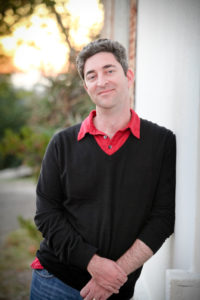
Paul Austin Ardoin is the author of the new book The Watchful Coroner.
Connect with Paul
Author Site
Facebook
Buy The Book
Sign up for our email and we’ll send you the best new books in your favorite genres weekly.
